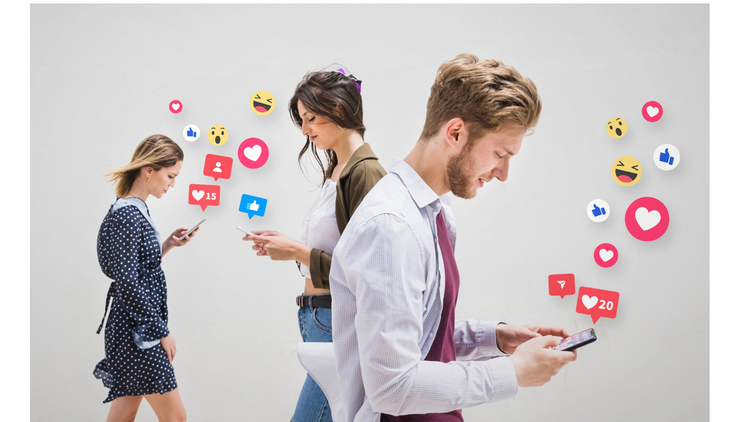In a world more and more dominated by notifications, likes and algorithms, a group of students from the Harvard University He designed a protocol that seeks to help young people to cut with digital addiction. The method, baptized as “5D”proposes a specific roadmap to leave behind the Cellular dependence and social networksin search of a life with greater presence, attention and mental freedom.
Behind this initiative is Gabriela Nguyena 24 -year -old girl who grew up in Silicon Valley surrounded by devices and today is a master’s degree in Harvard. Tired of constant stimuli bombardment, created the movement Appstinencewhich already adds followers in different parts of the world.
What is the 5D method to disconnect from the cell phone?
Nguyen’s proposal is based on a simple but powerful premise: Social networks are optionaland yet millions of people feel they can’t live without them.
The protocol 5D Establish five progressive steps:
-
Decrease: Reduce the time of use of apps and social networks.
-
Deactivate: suspend accounts temporarily.
-
Eliminate: Delete the profiles definitively.
-
Downgrade (LEVEL LOWER): Change the smartphone for a basic cell phone, without internet access.
-
Disconnect: Complete abandon the smartphone category.
Social networks.jpg
According to Nguyen, this approach is inspired by traditional treatments for addictions, and aims to break with the stimulus-response cycle that occurs with the compulsive use of the cell phone.
A movement that gains adherents among young people
Far from being an individual experience, Appstinence was consolidated as a student movement in Harvard, and today provides tools, accompaniment and debate spaces for those who want to reduce their digital use.
“It’s like training a muscle: if you do it with method and support, it works,” explains Nguyen, who says that since he abandoned social networks and his smartphone, he recovered the ability to concentrate, he improved his mental health and met again with the pleasure of face -to -face relationships.
The method is being replicated in other universities, schools and groups of young people in the United States and Europe, where more and more people are encouraged to question the hyperconnectivity model that dominates modern life.
Why is it important to leave the cell phone?
The context is alarming. According to data from American Addiction Centerin 2024 there were more than 6,800 million smartphones users in the world, of which the 6.3% showed addiction signs.
In addition, compared to a decade ago, users today receive a 427% more notifications and send a 278% more messageswhich reflects a dynamic of constant digital interaction, often compulsive and exhausting.
In Argentina, although there are no exact local figures, reality is not very different: adolescents pass between 6 and 8 hours a day in front of screensand the use of social networks is part of the day to day from an increasingly early ages.
Network addiction

Similar initiatives in other parts of the world
The Appstinence case is not unique. In Europe, for example, a similar proposal emerged in the Netherlands: “The offline club”which organizes encounters without cell phones in coffees, parks and other spaces, where people can read, chat or simply be present without technology mediation.
The success of the offline club – which already expanded to cities such as Amsterdam and Milan – shows that there is a growing need to re -connect with the human, the real and the tangible.
Can you work in Argentina?
The challenge for Argentine young people is not less. In a country where social networks are not only used for leisure, but also to work, inform and even buy, Digital disconnection seems distant. However, Appstinence’s proposal does not point to an immediate total resignation, but to a progressive, guided and reflexive transition.
Nguyen’s experience shows that Another way of living is possibleand that reducing the use of cell phone does not imply backward, but Recover your own care control and time.
In times where mental health is in the center of the debate, these types of initiatives can mark a valuable path, especially for new generations that seek a healthier balance between technology and well -being.
Source: Ambito
I am an author and journalist who has worked in the entertainment industry for over a decade. I currently work as a news editor at a major news website, and my focus is on covering the latest trends in entertainment. I also write occasional pieces for other outlets, and have authored two books about the entertainment industry.




